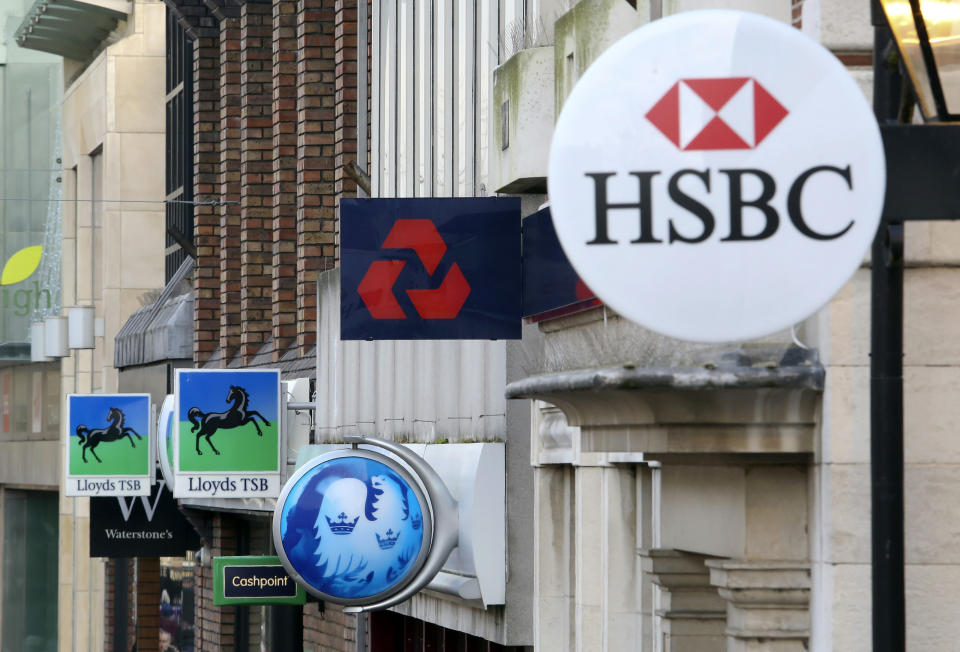Banks of Britain: Is it time to love them again?

Ten years since the financial crisis, banking remains an unloved sector. Ever since the US subprime mortgage scandal rocked the world in 2008, the villains of global economy have rarely been out of news. A decade of regulation including capital adequacy ratio requirement and, in some cases, separation of investment banking from retail have healed some wounds.
But the negative sentiment has lingered and despite banks reporting profits British investors are being cautious. Rather, many are looking to find excuses not to invest in banks. Much of it is contempt for banking culture, while PPI claims and fines for professional misdemeanours have exacerbated investors’ negative attitude.
This does not mean there is no value in banks.
“Both Barclays and RBS are trading at a 15% discount to book value. Banking is cash generative and higher rates expected next year could contribute to higher profits. Lloyds and Barclays have started to pay dividends again. Lloyds yields 4.6% which look acceptable against HSBC’S 5.2%. They are probably the two most interesting banks,” says Charles Newsome, director of Investec Wealth Management.
Sherborne Investors’ Edward Bramson recently took a 5.2% stake in Barclays. He is a philanthropist, but a shrewd operator. There was talk about him wanting to break up Barclays. Newsome believes “he just sees shareholder value being improved and likes the fact that Barclays has several arrows to its earnings bow.”
Barclays expected affiliation with PayPal is likely to be well received. Chris Bailey of Financial Orbit says: “I have been warming to Barclays for a while and continue to believe activist pressure will push the shares back up to book value in the 250s.”
RBS, after a decade is now back in profit. However, clarification over the US Department of Justice’s fines is needed for it to make contingency plans for its on-going business. The cost of the bail-out in 2008 together with a decade of losses has cost the taxpayer close to £100bn.
WH Ireland’s banking analyst Mike Ingram agrees that there is scope with RBS and Barclays. However, he feels that banks will struggle with organic growth targets, limited opportunities for credit expansion, revenue growth and overly competitive narrowing margins.
Lloyds, Ingram says, has a clean balance sheet but “the stagnant share price illustrates that its vast mortgage lending book is very reliant on low interest rates as many consumers have chosen a variable rate mortgage.” Its expansion in credit card business in acquiring MBNA for £1.9bn provides diversification for earnings.
Meanwhile, HSBC’s first quarter result disappointed investors last week. The bank’s $2bn share buyback offer failed to win them over as costs overtook revenue. “HSBC has underperformed in the last year but a new CEO and fresh senior management offers some real opportunities with the emphasis of its business focused on Southeast Asia, provided not too much credence is attached to wealth management,” Ingram said.
Lloyds, Barclays and RBS also published their first quarter results recently. In isolation they were acceptable. In the past decade these banks have had to pay over £40bn in PPI claims, which have hit their share prices.
In 2009, the Liberal Democrat leader Vince Cable had blamed “casino banking” for the collapse of banking system. That, however, isn’t entirely true. Yes, RBS’s £26bn purchase of ABN Amro was a poor call. But who’d have believed PPI miss-selling would cost £40bn and that bad loans with inadequate credit analysis would be the major culprits? The Libor and foreign exchange manipulation misdemeanours and miss-selling of mortgage-backed securities in the US exacerbated the public contempt for banks.
And yet surprisingly US banks have done well while shares in British banks have grossly underperformed since the introduction of quantitative easing on 9 March 2009. JP Morgan Chase shares have added 591% in value, whereas Barclays shares are only up by 59% in the same period.
Disclaimer: The content on this page does not constitute financial advice and is provided for general information purposes only. Nothing on this page should be regarded as an offer to conduct investment business or to buy/sell any investment.

 Yahoo Finance
Yahoo Finance 
